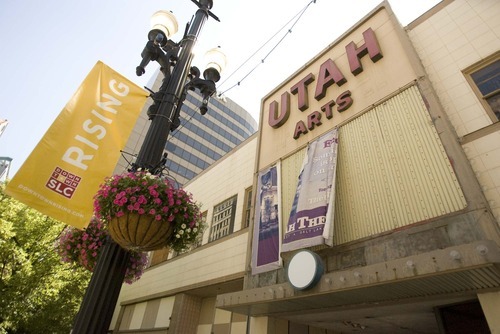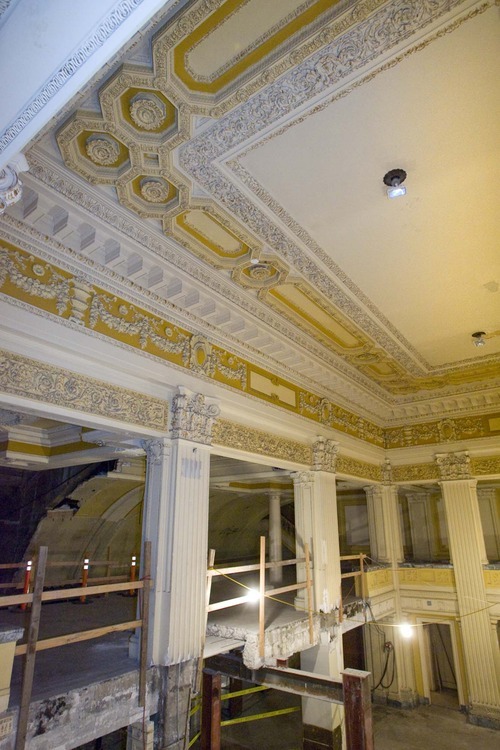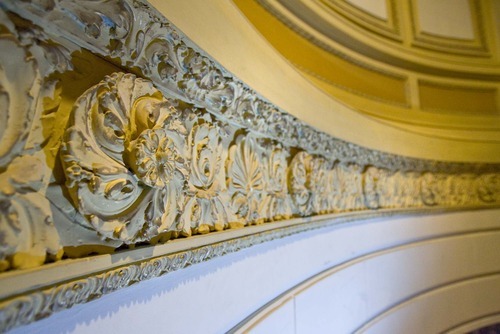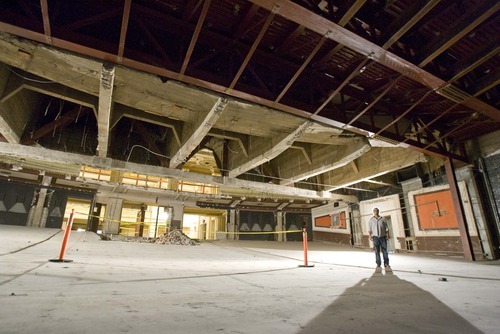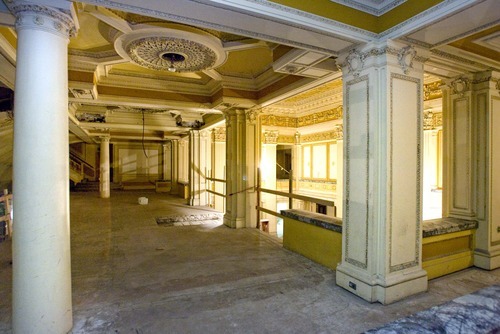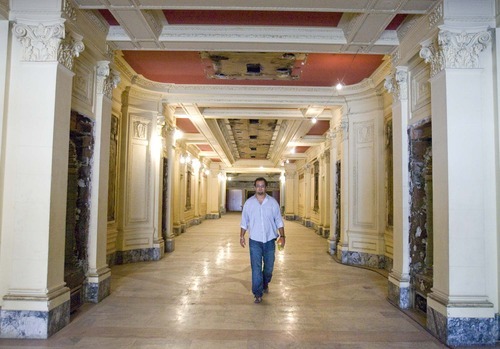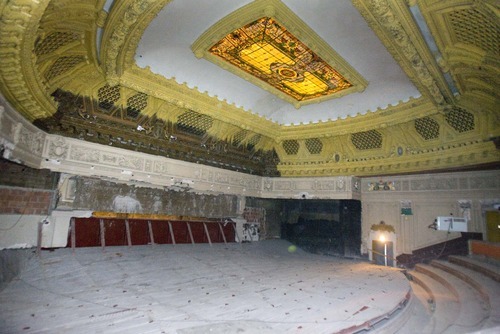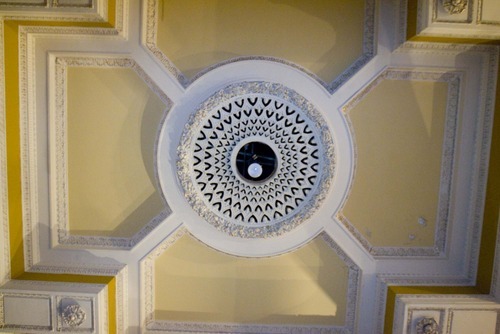This is an archived article that was published on sltrib.com in 2011, and information in the article may be outdated. It is provided only for personal research purposes and may not be reprinted.
From his office in the McIntyre Building in downtown Salt Lake City, construction and real-estate magnate Rick Howa can view the spot where the city wants to build the Utah Performing Arts Center — and he can see the 91-year-old Utah Theatre, which he once owned and believed could have been the Broadway-style playhouse of the city's dreams.
"I have to look at it every day now," Howa says, "and I'm glad I'm not looking at something I own."
The fate of the dilapidated Utah Theatre, which opened in 1920 at 148 S. Main as the Pantages Theatre and has been shuttered since 1992, may be tied to the future of a new downtown theater. In the 278 pages of the city's feasibility study on the Utah Performing Arts Center, the Utah Theatre is mentioned 10 times, always with vague generalities about a proposed renovation of the old movie house.
City officials say any new theater should be linked with the old one as part of a downtown cultural core.
"We have been thinking and working all along to have a development of both," Mayor Ralph Becker says.
City Councilman Luke Garrott, who heads the board of the city's Redevelopment Agency (which bought the Utah Theatre from Howa in 2009), says building a Broadway-style theater downtown would be a major change to the city's arts scene, and "it would be a real crying shame not to have the Utah Theatre to be a part of that."
"It's very clear to me," Garrott says, "that the only way we're going to restore the Utah Theatre is part of the funding package for the Broadway theater. I can't see it falling out of that basket."
When Howa bought the Utah Theatre in 1994, he intended to hang on to it until the building's value went up. Then he started thinking about renovating the site as a destination for touring Broadway shows.
"At that time, in the late '90s, there wasn't the demand for a Broadway theater," Howa says, citing high ticket prices. "As we priced it out and so forth, the bankers were willing to loan us the money at the time. We just didn't believe there was a demand for it."
As Howa weighed turning the Utah Theatre into a Broadway-style facility, some stumbling blocks arose.
The Utah Theatre's stage is about 6 feet too shallow for big Broadway touring shows, Howa says, and he couldn't knock out the back wall, because the land on the other side belongs to Utah Power (now Rocky Mountain Power). That wasn't an insurmountable problem, though, because Howa had plans to extend the proscenium forward into the seating area.
A bigger problem, Howa recalls, was competition around the corner from the Salt Lake County-operated Capitol Theatre.
"I was trying to make money," Howa says. "I'm not like the county. … When I'm competing with someone who's willing to lose money, it's pretty hard to compete with."
Howa considered tearing down the theater, but opted not to — in part, he says, because zoning laws would have required him to build something in its place. Selling to the city was, he says, "a personal decision. Probably a bad one, but a personal decision."
Because Howa toyed with demolition, the city moved in to buy the theater.
"We were really worried about losing that building," Garrott says. "The building has tons of sentimental value as well as potential and, I really think, placement. Location really tipped the scales."
One proposal gaining steam would return a renovated Utah Theatre to its original use — as a movie theater.
Three nonprofit groups — the Salt Lake Film Society, which runs the Tower and Broadway theaters; the Salt Lake City Film Center, which presents community film events; and Spy Hop Productions, a training program for teen filmmakers — have formed the Utah Film and Media Arts Coalition, with the idea of turning the Utah Theatre into a downtown film center.
The coalition and the county are conducting a feasibility study on a combined film venue. Such a facility could show independent films, as the Broadway and Tower now do, continue the SLC Film Center's community programming and provide a base for Spy Hop students. There also is talk — and, so far, all of this is just talk — of using the theater as a venue for the Sundance Film Festival.
The study is set to be completed this month or next, says spokeswoman Maura Carabello.
"Film has a connection to the Utah Theatre that's really neat," Carabello says. When she has toured the theater with Utah legislators, she says, "every other person could tell you about seeing 'The Sound of Music' there."
For now, though, there is no sound but silence at the Utah Theatre — and no sign that anything soon will change.
"We've taken the really big step in Salt Lake City by acquiring it. It was a big reach for the city," Becker says. "Now we've got to get the other pieces moving, so we can put it to use."


